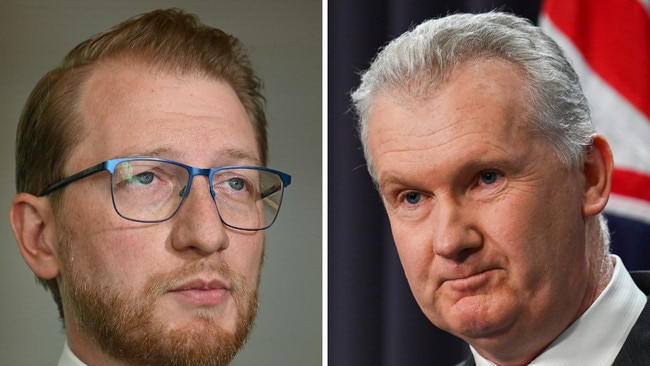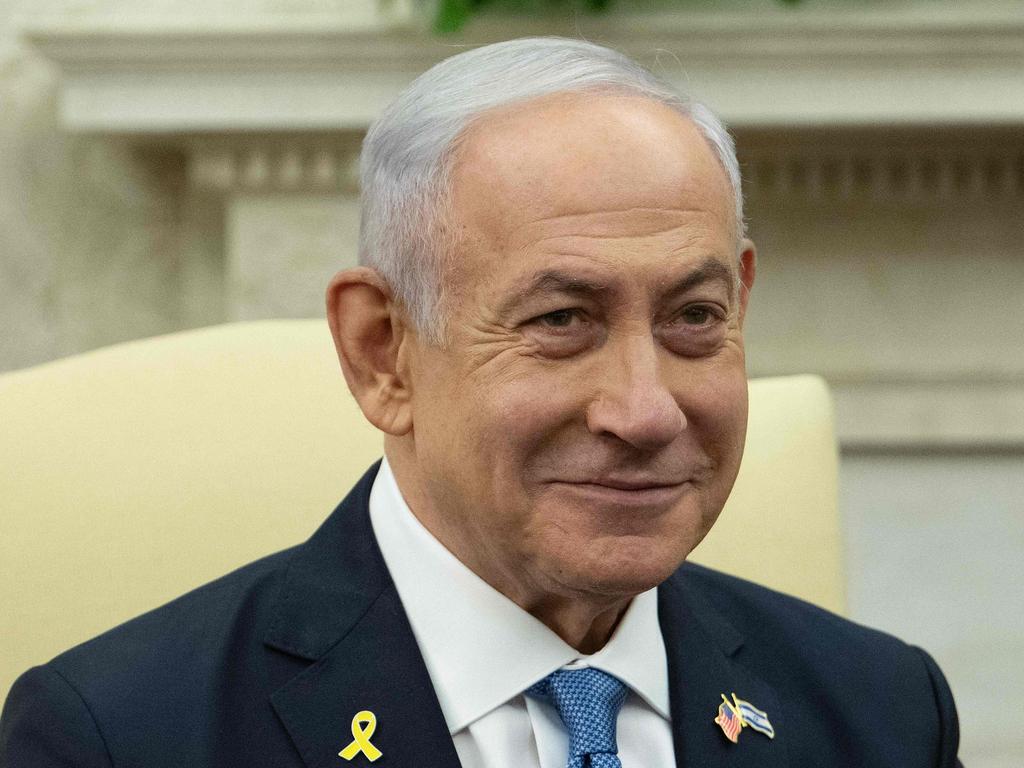
The supplementary question is how many, if any, of the almost 3000, mostly, tourist visas issued for travel to Australia have been rejected by the security agency.
These questions are at the heart of what has become a dramatically more electrified political debate after Peter Dutton’s impromptu declaration after the Olympic team homecoming that he did not think the government should be accepting anyone from the Gaza war-zone “at the moment”.
The Opposition Leader was immediately accused of racism by Islamic leaders and seeking to divide the nation by Anthony Albanese.
In parliament, there was no doubt new Immigration and Home Affairs Minister Tony Burke was vastly superior to his inept predecessor, Andrew Giles, and was confidently able to produce facts and figures, a coherent political response and a declaration there would be “no compromise on national security”. But neither the Prime Minister nor Burke provided any real answer to the key questions at the heart of the process of ASIO security assessment on a face-to-face basis, the use of biometrics to check identity and basis, or number, of any rejections on security grounds.
Albanese and Burke both cited ASIO as being part of the process – particularly on the use of the international terrorist watch list – and gave global numbers for the number of visas accepted and refused, but would not give details of ASIO individual involvement or the number of ASIO rejections.
Albanese used ASIO boss Mike Burgess as cover and referred to the same processes being in place as was the case under the Coalition.
Liberal James Paterson, Coalition Home Affairs spokesman, has been cutting through on the vexed issue of allowing Palestinians from war-torn Gaza into Australia without security checks from ASIO and Home Affairs.
It’s a simple proposition: that while allowing people escaping the violence of Gaza to come to Australia it is reasonable that all people coming from a terrorist-controlled territory be subjected to full security checks.
Paterson and Simon Birmingham, as foreign affairs spokesman, have argued that in similar situations in Syria and Afghanistan, visa applicants were sent to third countries for proper security clearance, including biometric tests, to ensure the identity of the applicant.
Paterson simply says Australians are entitled to expect people being rushed to Australia from a war zone would all face security screens.
It has been the case previously when people were escaping war zones into Australia, and given the extent of the concern expressed by Albanese about social divisions and increased terror threats, it is not unreasonable.
Paterson has for weeks argued that there should be security checks for all and accused the government of unseemly haste by not having ASIO check all applicants and then having some visas cancelled later when ASIO checked.
Paterson said: “The government also said that all the security checks took place, all the character checks took place, but in many cases after the visas were issued, they were subsequently cancelled on security advice. So it can’t be the case that sufficient security checks took place at the start.”
On Wednesday, Dutton concurred: “I just think every Australian would be shocked to think the government’s bringing in people from a war zone, and that ASIO is not conducting checks and searches … it is something the Prime Minister needs to answer because we’re living in a heightened security threat environment”.
Albanese accused Dutton of seeking to divide Australia and of lacking faith in ASIO but would not answer on security checks as the government works on a regime for Gaza arrivals as visas begin to expire.
Burke’s better – but Albanese doesn’t want months more of immigration confusion.







The basic question that must be answered in the interests of national security, social cohesion and public reassurance on Australia’s acceptance of people from war-torn Gaza is whether ASIO is actively checking all visa applications.